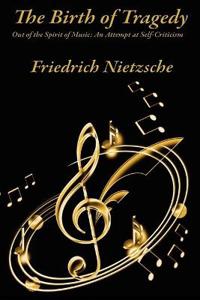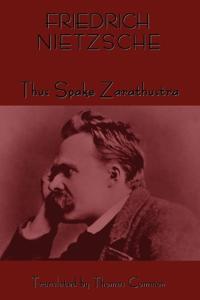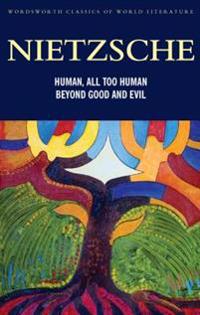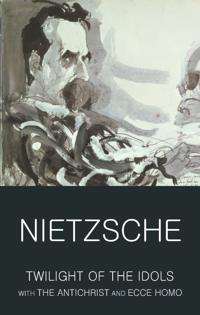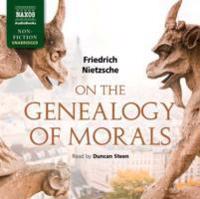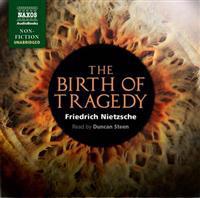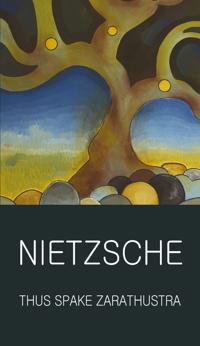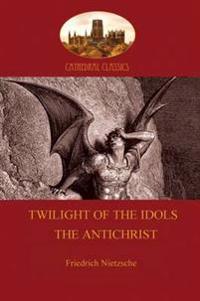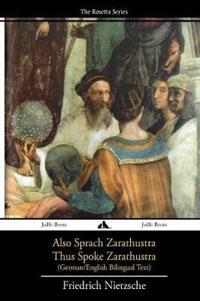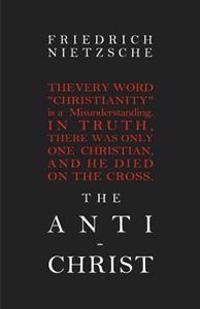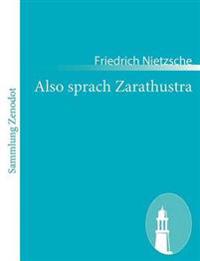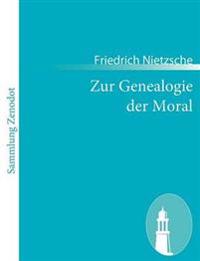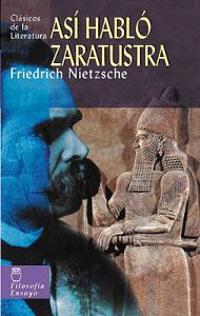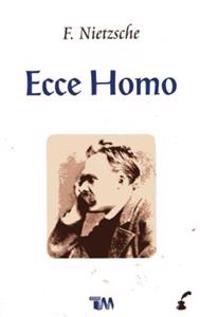The Birth of Tragedy Out of the Spirit of Music (Häftad)
avFriedrich Wilhelm Nietzsche
ISBN: 9781617208362 - UTGIVEN: 2012-05Thus Spoke Zarathustra (Häftad)
avFriedrich Wilhelm Nietzsche
ISBN: 9781618950635 - UTGIVEN: 2012-02Human, All Too Human & Beyond Good and Evil (Häftad)
avFriedrich Wilhelm Nietzsche
ISBN: 9781840220834 - UTGIVEN: 200808Human, All Too Human (1878) marks the point where Nietzsche abandons German romanticism for the French Enlightenment. At a moment of crisis in his life (no longer a friend of Richard Wagner, forced to leave academic life through ill health), he sets out his views in a scintillating and bewildering s[...]
Twilight of the Idols with The Antichrist and Ecce Homo (Häftad)
avFriedrich Wilhelm Nietzsche
ISBN: 9781840226133 - UTGIVEN: 200106The three works in this collection, all dating from Nietzsche's last lucid months, show him at his most stimulating and controversial: the portentous utterances of the prophet (together with the ill-defined figure of the Ubermensch) are forsaken, as wit, exuberance and dazzling insights predominate,[...]
On the Genealogy of Morals (CD-bok)
avFriedrich Wilhelm Nietzsche
ISBN: 9781843796848 - UTGIVEN: 201306This is one of the most accessible of Nietzsche's works. It was published in 1887, a year after Beyond Good and Evil, and he intended it to be a continuation of the investigation into the theme of morality. In the first work, Nietzsche attacked the notion of morality as nothing more than institution[...]
The Birth of Tragedy (CD-bok)
avFriedrich Wilhelm Nietzsche
ISBN: 9781843797272 - UTGIVEN: 2013-11One of Nietzsche's earliest works, The Birth of Tragedy (1872) is a remarkable source of inspiration. It is here that the philosopher passionately expresses his faith in the human soul and explores the consolation that art can provide for life. He presents a laudatory portrayal of the German compose[...]
Thus Spake Zarathustra (Storpocket)
avFriedrich Wilhelm Nietzsche
ISBN: 9781853267765 - UTGIVEN: 199706This astonishing series of aphorisms, put into the mouth of the Persian sage Zarathustra, or Zoroaster,contains the kernel of Nietzsche's thought. 'God is dead', he tells us. Christianity is decadent, leading mankind into a slave morality concerned not with this life, but with the next. Nietzsche em[...]
'Twilight of the Idols', and 'the Antichrist' (Häftad)
avFriedrich Wilhelm Nietzsche
ISBN: 9781907523663 - UTGIVEN: 2010-10Jenseits von Gut und Bose/Beyond Good and Evil (German/English Bilingual Text) (Häftad)
avFriedrich Wilhelm Nietzsche
ISBN: 9781909669239 - UTGIVEN: 2014-12Also Sprach Zarathustra/Thus Spoke Zarathustra: German/English Bilingual Text (Häftad)
avFriedrich Wilhelm Nietzsche, Tony J. Richardson
ISBN: 9781909669796 - UTGIVEN: 2013-11Die Frohliche Wissenschaft (Häftad)
avFriedrich Wilhelm Nietzsche
ISBN: 9783842470248 - UTGIVEN: 201205Also Sprach Zarathustra (Häftad)
avFriedrich Wilhelm Nietzsche
ISBN: 9783843066433 - UTGIVEN: 201101Zur Genealogie Der Moral (Häftad)
avFriedrich Wilhelm Nietzsche
ISBN: 9783843066662 - UTGIVEN: 201101Ainsi Parlait Zarathoustra (Häftad)
avFriedrich Wilhelm Nietzsche
ISBN: 9783849134419 - UTGIVEN: 2012-11El Caminante y Su Sombra (Häftad)
avFriedrich Wilhelm Nietzsche
ISBN: 9788497643535 - UTGIVEN: 2006-05Asi Hablo Zaratustra (Häftad)
avFriedrich Wilhelm Nietzsche
ISBN: 9788497644501 - UTGIVEN: 2005-04For lovers of timeless classics, this series of beautifully packaged and affordably priced editions of world literature treasures encompasses a variety of literary genres, including theater, novels, poems, and essays.
[...]

